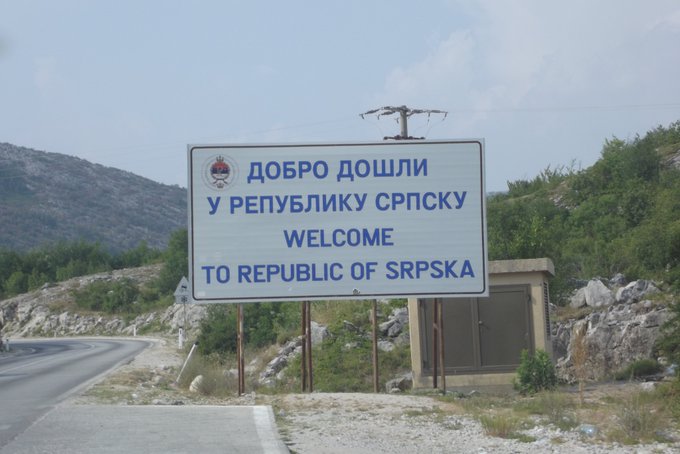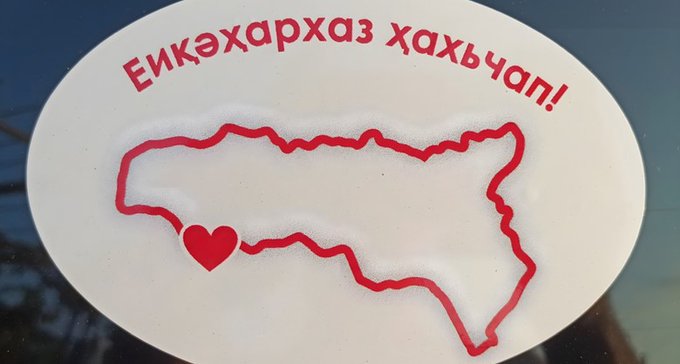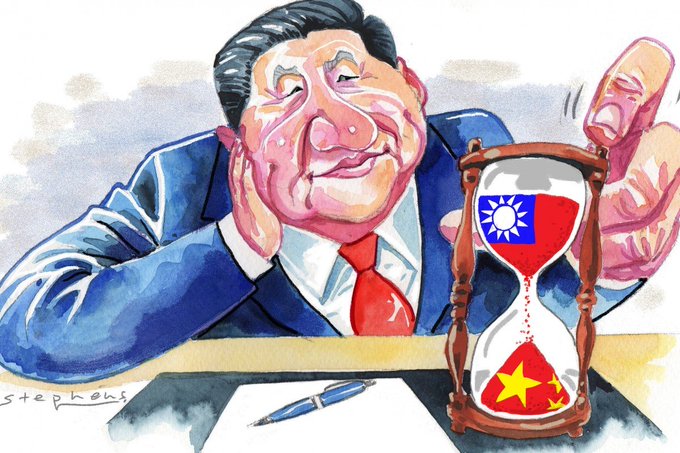Reclaiming Statehood in Republika Srpska: The Recent Outcomes of Dodik’s Protracted Politics
The Bosnian Serbs’ Day of the Republic reveals unconstitutional character and its celebration has been considered a provocation since 2015 by the Constitutional Court. This year, the commemoration took place in an even tenser atmosphere. Throughout 2021, the leadership of Republika Srpska (RS) ramped up provocations and moves towards establishing parallel governing structures. Additionally, the Croatian Democratic Union of Bosnia and Herzegovina (HDZ-BiH) also made calls of separatism from the central Bosnian state. As a response, international representatives failed to come up with any fitting solution. The medial framing of the crisis revealed a deep lack of understanding of recent Bosnian history.
Attributing the crisis solely to Milorad Dodik and his authoritarian policies led many to overlook other factors that escalated the situation. What seems like out of the blue steps toward secession must be placed into a broader frame of analysis that takes the different scales and temporalities of the crisis into consideration. This includes the reduction of the intra-RS opposition, obstruction of the Bosnian common institutions, constant targeting of the High Representative and exploiting the traditionally laissez-faire policy of patron state Serbia, seconded by growing Russian interventionism in the region. The stage had been set for the acceleration of the attack against the common institutions of BiH and the reclaiming of Republika Srpska’s lost statehood.
Dodik’s inflammatory rhetoric can be traced back to his campaign for the 2006 general elections. To compete with the Serb Democratic Party (SDS) and bring the Alliance of Independent Social Democrats (SNSD) back to power, he also had to find an enemy. His scapegoat became any Bosnian political parties, the joint institutions, and the High Representative. Dodik, along with other SNSD candidates, seemed to suggest that successive High Representatives, including Carl Bildt and Christian Schwartz-Schilling, were cooperating with Bosnian parties to undermine Republika Srpska within BiH, pushing a centralist and common agenda. If successful, Dodik argued, it would have allowed Bosniaks to eventually outvote Serbs in common institutions.
From 2006 to 2016, SNSD’s actions at all levels of government were directed at reclaiming statehood for Republika Srbska. Despite the work of the High Representative bolstering institutions and governance at the central level, domestic politics in BiH has remained highly conflictual, with frequent disputes between the representatives from the three constitutive peoples leading to political stalemate. Exploiting the structural flaws of the post-Dayton model of governance, Dodik, in every mandate served, has always advocated for the dismantling of state laws and institutions, and obstructed moves towards a more tightly-integrated state. In 2008, he initiated the return of the fifty competencies that had been transferred from the entities to common institutions in 1995 and made it clear that the government of Republika Srpska, the Serbian member of the Presidency, as well as Serb deputies in the Bosnian Assembly would oppose any further transfers.
As structural constitutional reforms were required to advance the process of European integration, the Party of Democratic Action (SDA) and the Party for Bosnia and Herzegovina (SBiH) – the main Sarajevo-based parties – were supporting the “one man, one vote” principle, which would have nominally allowed the Bosniak demographic to outvote the rest of the constitutive peoples. Furthermore, the SDA and SBiH supported replacing the Council of Ministers with a single Prime Minister at the Bosnian level, which strengthened Dodik’s claims that Bosniak leaders were violating “the spirit of Dayton” and trying to create a unitary state. This narrative was further supported by the Croat representatives to the Presidency, who called out their Bosniak counterparts on the same grounds.
In reaction, Dodik developed a twofold response: calling for a referendum and turning BiH into a “union of states”. This would have been a confederation model a la Serbia and Montenegro, with the entities becoming sovereign states with full legislative and executive powers. Dodik repeatedly presented this model as the only option to avoid dissolution. Relying on the dysfunctional character of the state and its institutions, Dodik has propagated this narrative since coming to power. Dodik linked the matter of holding a referendum to the broader issue of self-determination for the Serbs as a constitutive people of BiH, especially in relation to their future within Bosnia. While he made several allusions to a possible referendum on the secession of Republika Srpska, he seemed to prefer an enhanced “state within the state” status.
In 2011, Dodik chaired a roundtable entitled “Republika Srpska – a referendum as a challenge”, organised by the press agency Tanjug. This roundtable gave him a platform to discuss “the right of RS to hold a referendum on its status in the common state”. “We are not against BiH, its international political capacity, not its territorial integrity, but we are in favour of internal regulation that implies the existence of the RS and its competencies,” said Dodik. In 2013, Dodik’s Presidential Cabinet published the “Dayton Structure of BiH and the Legal Status of the RS”. During the follow-up press conference, Dodik reaffirmed his commitment to Dayton, yet advocated for a confederation which, according to him, was in line with the treaty but would allow Republika Srpska to take back its “confiscated powers”.
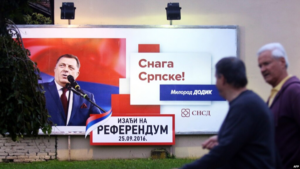
Image: “Strong Srpska” Campaign for the 2016 Referendum in Republika Srpska (Source: Radio Free Europe)
The referendum in 2016 on whether to officially make “Republika Srpska Day” a holiday helped the ethnocratic regime in RS reinforce their path towards reclaiming statehood. It also created the necessary consensus among RS’s political parties, allowing Dodik to challenge the central government and the High Representative. It had a surprisingly low turnout of just 55%, barely above the required threshold. But as 99,81% voted in favour of setting the national holiday, it strengthened the position of Dodik and signalled SNSD’s capacity of mobilisation and control over government bodies, and thus marked another step towards a proto-state.
On the day of the referendum, 25th of September 2016, I was in Banja Luka, and travelled to Sarajevo the day after. Given the outburst of joy and triumph in the streets of the Bosnian-Serb capital, but also the dismay of my anti-nationalist friends and colleagues, I recall my certainty that a tremendous change would occur in the days or weeks to come. It barely did though. Condemnations from all sides arrived but did not lead to harsh sanctions on the Bosnian-Serb leadership from any actor that could have dissuaded SNSD dominated Serb institutions to turn their backs on Dodik in favour of seeking consensus. Dodik himself kept consistently pursuing his dual narratives on the referendum and the union of states, as well as his strategy of obstructing the functioning of the joint institutions but did not seem to push for full independence. Nevertheless, it helped to move towards the establishment of parallel institutions in RS, and it took another five years, until SNSD proceeded further in that direction.
In July 2021, High Representative Valentin Izko published the law on genocide denial and glorification of war criminals, providing new impetus for Dodik’s plans. Once again, RS National Assembly voided the law, thereby rejecting the jurisdiction of the central institutions on its territory. For the rest of the summer, Bosnian Serb representatives boycotted central institutions, and maintained the “disrupt and obstruct” strategy. For instance, Dodik declared his intention to abolish the 2005 Law on the Armed Forces of BiH as unconstitutional. This was met with weariness and indignation by the non-Serb representatives in Sarajevo – the Chairman of the Presidency of BiH, Zeljko Komsic, called it a criminal act of rebellion. In December 2021, RS’s National Assembly had a vote in favour of opting out of the Bosnian armed forces, judiciary, and tax system. The lawmakers went even further on the February 10th, 2022, by approving a draft law “to annul the unconstitutional establishment of the [state-level] High Judicial and Prosecutorial Council of Bosnia and Herzegovina” and authorise RS to appoint its own. The creation of parallel structures of governance does not only undermine the legitimacy and capacity of the state, but also leverages the ethnocratic system firmly established in RS, giving it total control over the decision-making process.
Dodik and his companions benefited immensely from the advantageous external context. First, Vučić’s Serbia had taken a more aggressive posture in regional politics, exemplified for instance by the 2021 North Kosovo crisis, but also by the strengthening of patron-client relations with RS. While condemning the holding of the 2016 referendum, Vučić did not actually attempt to dissuade Dodik from carrying it out. On the contrary, Vučić’s interest in becoming the regional hegemon are in line with Dodik’s provocative rhetoric and attempts to destabilise BiH joint institutions. Indeed, Vučić’s presidency marked a shift in the scope of bilateral projects, especially in highly strategic sectors, namely energy and defence. In addition to being economically attractive, such cooperation has a high potential for destabilising BiH, as these key sectors belong to the still disputed competences between the two entities. By acknowledging RS’s autonomy in those sectors, Serbia supports centrifugal forces in BiH.
The cooperation between RS and Serbia was kickstarted in August 2018, when Serbia committed to investing 200 million Euros for the construction of “Foča” and “Paunci” power stations. Another memorandum from the same time concerned cooperation in the defence industry, which in practice had already started in 2017 with a planning meeting on integrating RS’s defence industry, its workers, technologies, and infrastructure with the Ministry of Defence of the Republic of Serbia. Surprisingly, the outcome of this meeting went relatively unnoticed, despite the negative implications the Serbian decision had on BiH’s sovereignty. In addition to investments, Serbia and RS are cooperating in matters of high symbolic value, such as declaring their intent on jointly composing a Declaration on the Survival of the Serbian People,” focused on the preservation of the Serbian language and culture within the former Yugoslav space. These measures raise the question of viability of RS self-determination following a referendum. If a revision of the Dayton Accords is necessary, would RS be able to function on its own, or would it become a de facto state surviving mostly due to the support of its patron?
Finally, international politics have also played a role in bolstering Republika Srpska’s claims for statehood. Over time, Dodik has gathered more supporters, such as Hungary’s Orbán or Slovenia’s Janša. The latter is credited as the author of an infamous 2021 non-paper arguing in favour of redrawing the borders in the Balkans along ethnic lines, thereby allowing RS to merge with Serbia. As recently as February, Orbán has reiterated his opposition to any sanctions against the RS leadership, going against most EU members. Although Dodik’s provocations mark the triumph of illiberalism, nationalism, and populism in the Balkans, the response from the EU and the US – the main safeguards of the peace since the Dayton Agreement – has remained muted, limited to expressions of concern and reaffirmations of their commitment to a united BiH.
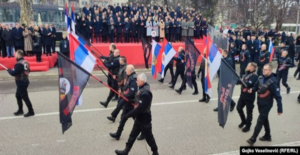
Image: Paramilitary unit “Night Wolves” veterans marching on Dan Republike Srpske in Banja Luka, January 9, 2022 (Source: Radio Free Europe)
A slap in the face for the EU and the US came in November 2021. China and Russia agreed to vote in favour of extending the EU-led peacekeeping force in Bosnia if the resolution excluded all references to the Office of the High Representative, Christian Schmidt. The vote occurred only a few days after Schmidt’s latest report to the Security Council noted the “existential threat” caused by the separatist actions of Bosnian Serbs. The growing influence of Russia in the Balkans has created a triadic alliance between Putin, Vučić, and Dodik. As Putin is strongly against BiH joining NATO and has promised to retaliate should the country move ahead with Partnership for Peace, Dodik’s destabilisation efforts are useful for Russia, and are rewarded financially and diplomatically. Since December 2018, RS started to receive gas from Russia via the TurkStream pipeline, and further discussions on future energy cooperation were underway. Thereby, Putin helps Dodik to block national-level legislation to regulate the gas and electricity sectors. In sum, Putin is toying with Western Balkans and Dodik is toying with BiH, and the two have found converging interests.
In conclusion, RS evolved under Dodik from a de facto state whose existence depended on the goodwill of its expansionist patron- state to a player in its own right, with its own political agenda. Dodik, and RS, benefits from a favourable regional and international context due to the EU´s lack of coherence and proactivity and Russia’s attempts of destabilisation. This is not accidental series of unfortunate events, but the culmination of long-term processes aiming to dismantle the state of BiH for the benefit of the ethnocratic system established in Republika Srpska, aided by the “right” regional and international context.
Note! As this post was written a week before the start of the Russian invasion of Ukraine, Russia’s Western Balkans policy and its regional outcomes might evolve in the weeks or months to come.
Author: Sophie Gueudet


